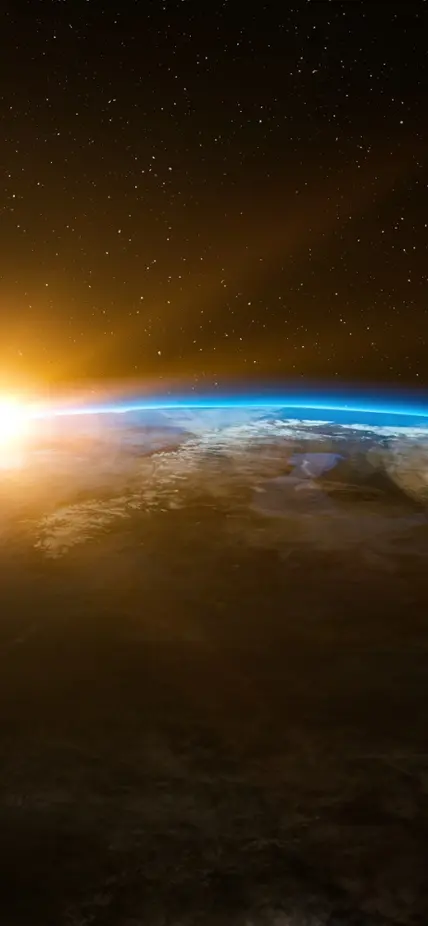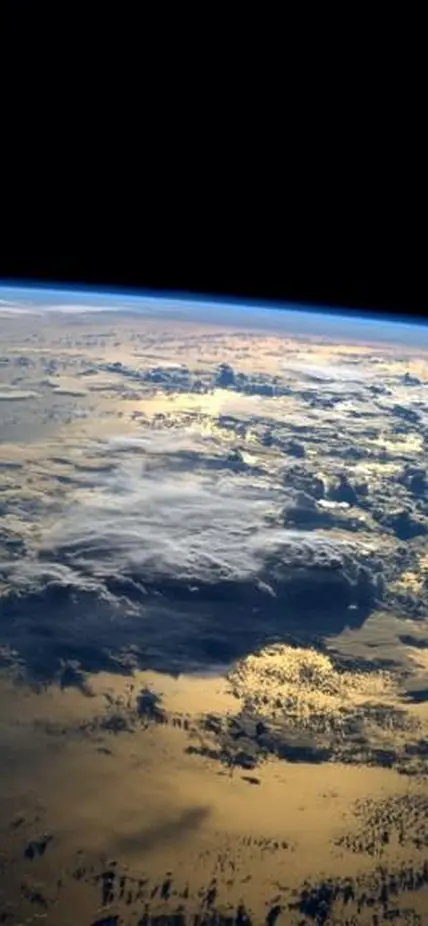Washington, DC—This Earth Day Carnegie Science is building on our decades-long leadership in climate and energy—as well developmental biology and Earth systems research—to launch the Climate and Resilience Hub, which will meet the urgency of the moment with a cross-disciplinary approach that incorporates the expertise of dozens of Carnegie Science principal investigators, ranging from ecology to atmospheric science to volcanology.
Carnegie Science is devoted to supporting some of the world’s leading scientists in tackling the most vexing challenges across a broad range of disciplines in an atmosphere of expansive intellectual freedom. This hallmark flexibility makes it an ideal venue for the transdisciplinary collaboration needed to take on one of the greatest challenges of the 21st century—climate change. Headed by Anna Michalak, the Hub is a new organization-wide center that will help to coordinate Carnegie Science’s broad expertise to facilitate, enable, and scale work in climate and sustainability.
This effort brings together researchers from across all three Carnegie Science divisions with the necessary technical and scientific expertise for tackling problems in climate, resilience, and sustainability. More than a third of Carnegie Science’s Principal Investigators—representing disciplines as varied as aquatic ecology, climate science, volcanology, and astronomy—have already joined the Hub and are committed to lending their time and expertise to its mission.
Members of this Hub community have identified some early areas of focus that are well matched to the breadth of their expertise. These include studying volcanic activity as a window into both atmospheric climate processes and ecosystem resilience in the oceans; developing approaches for more deeply integrating computational modeling with data from multiple field sites at scales spanning from genomes to ecosystems; and expanding our understanding of resilience in the context of climate and sustainability by viewing it from perspectives as diverse as food, water, energy, infrastructure, adaptation, geohazards, and early warning systems.
The Hub will also deepen existing Carnegie Science efforts to answer questions such as: How resilient are species, communities, and ecosystems to global change? To what extent does global change affect the ability of organisms on land and in the oceans to sequester atmospheric carbon? How do microbial communities contribute and respond to global change? How does climate change impact water quality and scarcity?
“The very low barrier to cross-disciplinary collaboration at Carnegie Science enables the type of innovative research that is so essential to understanding and mitigating the many faceted challenges of the impact of climate change on Earth’s interconnected ecosystems,” said President Eric D. Isaacs. “The Hub will build on the organization’s diverse knowledge base and expertise that includes ecologists, geochemists, volcanologists, atmospheric chemists, molecular and evolutionary biologists, and astronomers, many of whom are eager to apply their knowledge and skills towards climate and sustainability.”
Added Isaacs: “Central to understanding and anticipating the impacts of climate change is probing the often-complex interactions occurring at the molecular, organismal, and ecosystem scales, which play key roles in shaping the development and health of ecosystems.”
The Hub was designed to amplify scientific impact by facilitating partnerships between Carnegie Science researchers and external groups, including non-traditional research partners such as private sector groups, NGOs, philanthropies, and international research organizations. It will also train a cohort of postdoctoral fellows looking to leverage skills and expertise acquired as part of Ph.D. programs across a variety of science and engineering disciplines to challenges in climate and resilience.
“Much as we are at an ‘all-hands-on-deck’ moment in terms of the urgency of the climate crisis, we also recognize that we need ‘all-disciplines-on-deck’ if we are to identify and seek creative solutions,” Michalak said. “I want to bring in those with experience studying atmospheric chemistry of exoplanets or the climate effects of geophysical phenomena as well as those who have spent their careers developing high performance computing and engineering skills in astronomy and the geosciences.”
Carnegie Science investigators played a pivotal role in establishing the field of ecology in the early 20th century through our Desert Laboratory in Arizona and have been a driving force in the expansion of this discipline to take a global view of the Earth System. Carnegie Science established the Department of Global Ecology as part of its centennial celebrations in 2002, and Michalak served as its Director from 2020 to 2023.
“Carnegie Science researchers are recognized worldwide as thought leaders in climate, sustainability, mitigation, and energy solutions, as well as the study of complex ecosystems on land and in the sea,” Michalak said. “Publicly launching the new Hub this Earth Day takes these efforts to the next level and allows our strength in this space to guide our partners toward success.”
As the founding Director of the Climate and Resilience Hub, Michalak is helping to bring climate and resilience work to the center of Carnegie Science’s organizational mission. The initial effort will benefit from a recent $20 million grant from the State of California, as well as from funding by the Carnegie Science endowment.
Michalak’s years of scientific leadership have positioned her as an asset to both scientific peers and policymakers. She is the lead author on the most recent U.S. Carbon Cycle Science Plan, co-chair of the National Academies of Science, Engineering, and Medicine committee reviewing NASA’s implementation of the decadal survey for Earth observations from space, a Visiting Faculty Researcher at Google Research, and Co-Chair of the carbon and water advisory boards for Schmidt Sciences.
These efforts to reduce the barriers to coordination across the interfaces between the research community and policy, governmental, private sector, and stakeholder communities, and to increase the effectiveness and efficiency of such coordination, will serve as a template for the partnerships that the new Hub will enable.
Meet the Founding Director
Anna Michalak has been a Staff Scientist at Carnegie since 2011 and served as Director of the Department of Global Ecology from 2020 to 2023. Prior to joining Carnegie, she was an Associate Professor at the University of Michigan, Ann Arbor. Over the course of her career, Michalak has developed pioneering approaches for quantifying greenhouse gas emissions and for characterizing how climate change impacts the biosphere’s ability to sequester carbon.
She has also revolutionized our knowledge of how a warming planet and shifting precipitation patterns impact coastal, lake, and river water quality around the world. She is a Fellow of the American Geophysical Union, the recipient of the AGU Joanne Simpson Medal, a Scientific Member of the Max Planck Society, and a Leopold Environmental Leadership Fellow, among other honors. She holds a Ph.D. and M.S. in Civil and Environmental Engineering from Stanford University, and a B.Sc.(Eng.) in Environmental Engineering from the University of Guelph, Canada.

